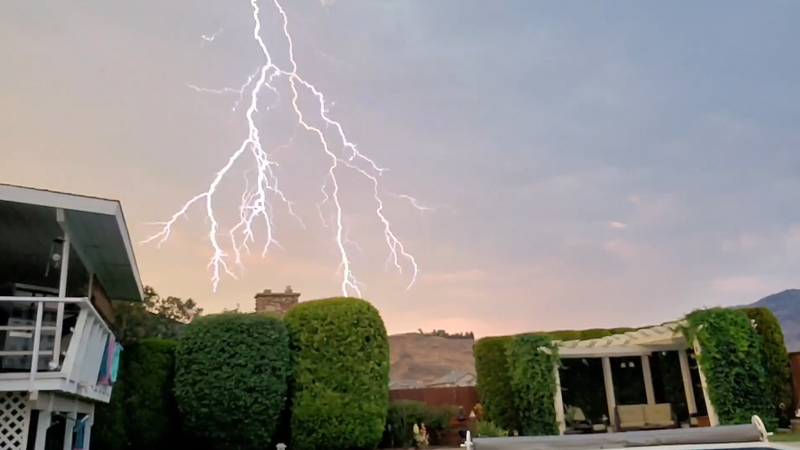
Environment Canada counted 26,000 lightning strikes in B.C. Interior Thursday night
KAMLOOPS — A lightning storm that swept through the southern Interior Thursday evening (July 8) has officials worrying about new fire starts.
Environment Canada’s Doug Lundquist says multiple storm systems zapped the ground with as many as 26,000 lightning strikes.
WATCH (Video Credit: CFJC Today / Kent Simmonds)


